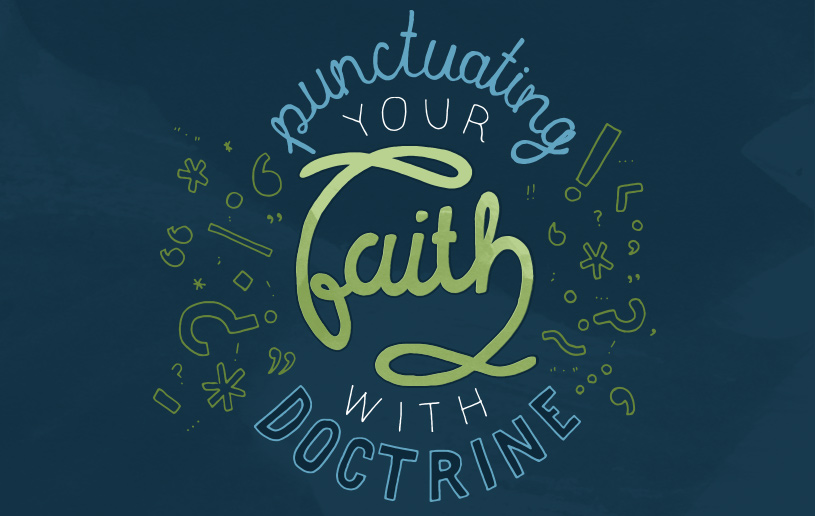
Those who know me well understand my passion for grammar. But I wasn’t always this way. In fact grammar didn’t mean much when I studied writing and journalism at university. I knew I was a decent writer and assumed I didn’t need to put the work into mastering the rules since I was a “natural.”
Part of my degree included courses on punctuation. I had no time for it—I should have been in the field, making waves and wowing readers with my reporting prowess. Instead I was stuck in a classroom combing through worksheets searching for comma splices. What a waste!
But then one day something clicked and my grammatical life was forever changed. Commas WERE important. In fact, commas were IMPORTANT! It was like an awakening and from that point on I studied grammar with enthusiastic voracity. And, wouldn’t you know it, my writing improved.
Something so mundane as the rules of grammar proved to be the foundation I needed to find confidence and establish my voice.
When I think of doctrine in the Christian life, I liken it to grammar. Doctrine is boring. It’s old school. But wait…is that true? Maybe doctrine is actually the key to a passionate and vibrant faith.
I have one more story from school, which takes this idea a bit further.
As embarrassing as this is to admit, it took till I was nearly 20 before I was even suspicious of how sheltered my life was. I grew up assuming everyone else was just like me.
My first whiff of something different was when I attended a Bible school whose denomination was not the one I was raised in. As the year progressed there were more and more instances where I realized how different I was from the majority.
Their lingo wasn’t familiar. I didn’t know the answers to seemingly simple questions. Their comfort food references were foreign.
I felt like an outsider. It made me question everything including my faith, which is what we were supposed to have in common at Bible school.
Turns out the traditions and rote of my upbringing were intertwined with the articles of my faith. This sharp awakening launched me into arduous process of separating what was “Christian,” what was “denomination,” and what was “tradition.”
Although this wasn’t an easy process I am so thankful I went through it. I had the opportunity to sort out my faith and make the truth stick in my life. An opportunity I may not have recognized had I not been jolted into action.
There seems to be a cultural trend to let other people tell us what we think. It’s subtle but we often take what we read online and hear on the radio as fact, when it should simply be a launching point into our own research. And this goes for what we learn from the pulpit at church or around the table at home as well. What we hear from others may very well be true but it’s important we develop our own research and discernment skills.
This means taking what we’ve learned and weighing it against what the Bible says.
Chuck Swindoll says sound doctrine is invaluable and it’s the key to combatting biblical illiteracy. He also lists six reasons for why we should continue to study what the Bible says, even though we “already know what it says.”
- It gives substance to my faith
- It stabilizes me during times of testing
- It enables me to handle the Bible correctly
- It equips me to detect and confront error
- It makes me confident in my walk
- It filters out my fears and superstitions¹
If we don’t know what we don’t know then it’s easy to believe what’s not true. It’s only with a solid grasp of what the Bible says (and doesn’t say) that we can be confident in what we believe and why.
1. Charles R. Swindoll, “The Value of Knowing the Scoop” (Insight for Living, 1985).

